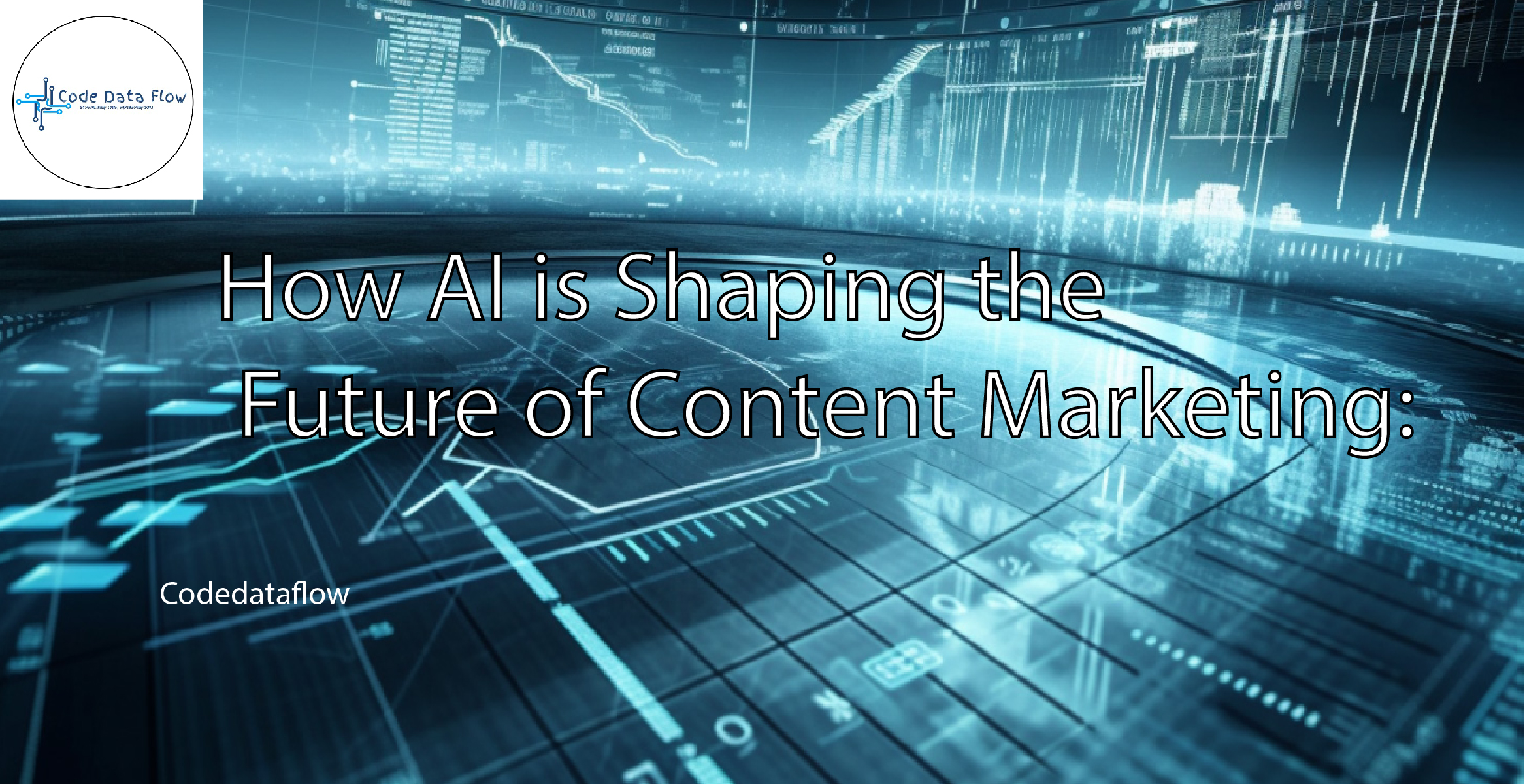
How AI is Shaping the Future of Content Marketing:
How AI is Shaping the Future of Content Marketing: Address new and novel technologies that became increasingly oriented mainly thanks to the last few years and one of the industries most influenced by, apart from other industries is marketing communication. Besides, all these benefits of AI and the above-mentioned personalization, AI should be provided as a helping utility for the marketer, who is changing from a toiler to a thinker, because AI is making marketers more efficient than before. In the next section, we are going to lift the curtain and present the newest methods of AI technology. Furthermore, you will familiarize yourself with the possibilities of AI technology and to what extent it is beneficial to you in the edge direction by utilizing an example or two.
1. Personalization at Scale:
AI can be understood as an instrument to decode the public’s choices, behaviour and likings with large scale data analysis. The utilization of this data helps to generate such content that is truly personalized to the users, so being in the right place at the right time.
For example, Netflix and Spotify rely on AI so that they can provide personalized content based on user behavior to their audiences so that they remain involved.
2. Content Generation with AI-Powered Tools:
The power of generative AI tools like ChatGPT, Jasper, and Copy.ai has carried content creation far as it is now possible to accomplish a high-end work within half the usual time. Starting from blog posts and social media captions, going up to E-mail campaigns, nowadays this technology is capable of efficiently drafting, editing, and even optimizing content for search engines.
Pro Tip: Use AI-generated text that is well suited and well combined with human creativity to achieve originality and authenticity.
3. Improved Audience Insights:
AI-based analytics systems surpass the capability of traditional analytics tools such as Google Analytics, giving customer data more importance while offering insights into different content that strikes a chord with your public. The purpose behind this is to ensure that the company’s purpose is clear and the resources to that end are being optimized.
Key Fields: The key tools that are used for marketing automation are Google Analytics 4, HubSpot AI, and Tableau.
4. Enhanced SEO Strategies:
Google and Bing, for example, prioritize more and more content that is attentive to the one who uses the page. In this way, Clearscope and SurferSEO replaced the human element to give marketers advice on how to improve search ranking performance. These tools are helpful because they can assist the user in promoting keyword usage, readability checks, and the other pillars of structure.
A New Trend: AI will become an indispensable assistance in voice search optimization, which means that we will have the possibility to talk to our devices in order to search the internet.
5. Dynamic Content Creation
Dynamic content lights up due to the interactions of the site visitors, and changes frquently to adjust the user´s inputs. Artificial intelligence can create websites and e-mail campaigns and also deliver ads that contain different contents as per the user´s requirements.
Demostrating: Online retail platforms like Amazon are now utilizing the power of this technology to give their users product recommendations based on their past browsing and purchase behavior.
6. Chatbots and Conversational Marketing
AI-powered chatbots are transforming how brands interact with customers. These bots provide instant responses, gather customer data, and even recommend content or products.
Advantage: They operate 24/7, ensuring customers are engaged at all times.
7. Predictive Analytics for Future Trends
AI can analyze historical data to predict future trends, helping marketers plan campaigns and create content that aligns with upcoming audience interests.
Use Case: Fashion brands predicting seasonal trends to craft targeted campaigns.
8. AI-Driven Video and Visual Content
With platforms like Synthesia and Canva integrating AI, creating professional-quality videos, graphics, and presentations has become simpler and faster. AI can also optimize these visuals for different platforms, ensuring maximum engagement.
Emerging Trend: AI-generated 3D content and virtual influencers are becoming popular in marketing.
Challenges to Consider
While AI offers immense potential, it’s not without challenges:
- Ethical Concerns: Transparency in AI-generated content is crucial to maintain trust.
- Dependence on Data: Poor-quality data can lead to inaccurate insights and decisions.
- Human Touch: Over-reliance on AI may compromise the emotional and creative aspects of content.
Embracing the Future
To stay ahead, marketers must integrate AI into their content strategies while retaining a balance between automation and human creativity. Start by experimenting with AI tools for specific tasks and scale your efforts as you become more comfortable with the technology.
The future of content marketing is undoubtedly intertwined with AI. By embracing its capabilities, businesses can deliver more personalized, efficient, and impactful campaigns than ever before.
What do you think about AI’s role in content marketing? Share your thoughts in the comments below!